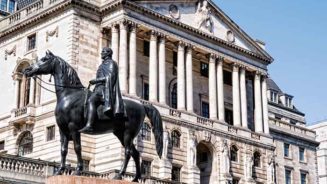The Reform party led by Nigel Farage has pledge £70bn in tax cuts in its manifesto launch today (17 June) cutting across income tax, inheritance tax and stamp duty.
Raising the tax-free personal allowance to £20,000 would save workers almost £1,500 a year while setting the higher-rate income tax threshold to £70,000 would save the highest earners £4,000 a year.
The Reform income tax proposals would give those earning £75k a nearly £5,500 per year saving.
In reaction, Rachael Griffin, tax and financial planning expert at Quilter said: “In a move that’s sure to stir the political pot, Reform UK has unveiled a suite of policies aimed squarely at the values of the Conservative right. By promising to raise the stakes in the tax and migration debate, the party is offering a feast of ‘red meat’ policies that are likely to energise right-wing supporters.
“The pledge to increase tax thresholds would be a welcome proposition for many, signalling a potential increase in take-home pay for hardworking people. However, the specifics of how that would be funded lacks detail, leaving voters to wonder about the financial feasibility of such promises.
“As with many tweaks to the tax system while this policy would lift lots of people out of having to pay income tax, it also means that those on higher-than-average salaries pay much less in tax too.
“There are lots of reasons why a lower tax environment can stimulate economic growth but measures like these can take time to feed through and on the face of it these kinds of pledges can look like a giveaway to the wealthier. Given the current economic environment, the optics of handing someone with a salary of £75,000 a nearly £5,500 per year saving while those on the average salary only save £1,486 might be difficult for many to stomach.”
Griffin further said: “These kinds of tax giveaways are not easy to fund and such a radical shake up would cost the government billions at a time when the public purse strings are stretched. As is often the case manifesto pledges among the smaller political parties are designed to ignite public debate rather than have a chance of being realistically implemented.
“As the battle lines are drawn, it is clear that Reform UK is not just chipping away at the status quo — it is shooting for the moon. Whether these tax pledges will prove to put pressure on the Tory and Labour policies remains to be seen, but they’re certainly poised to shake up the conversation on Britain’s fiscal future.”
How the income tax proposals would impact various salaries
| Proposed |
|
|
| Personal Allowance |
£20,000.00 |
|
| Higher Rate threshold |
£50,000.00 |
|
|
|
|
|
| Income |
Current |
New |
Saving |
| £35,000.00 |
£4,486.00 |
£3,000.00 |
£1,486.00 |
| £50,000.00 |
£7,486.00 |
£6,000.00 |
£1,486.00 |
| £75,000.00 |
£17,432.00 |
£12,000.00 |
£5,432.00 |
Laura Suter, director of personal finance at AJ Bell, also commented: “The Reform party has come out with a huge £70 billion tax giveaway for people’s personal taxes, covering a whole gamut of taxes from stamp duty to income tax to inheritance tax. While the other parties have been more frugal in their proposed tax breaks, Reform have gone all out with crowd-pleasing measures. But, of course, the cost for that has to come from elsewhere, with a cut to government spending, a slashing of the foreign aid bill and scrapping net zero all on the cards, among other things.”
Income tax
“If you’re a voter looking for a big income tax giveaway, then Reform is certainly planning to deliver it. The party has pledged to hike the tax-free personal allowance from the current £12,570 up to £20,000 – saving almost £1,500 a year in tax for anyone earning more than the new limit. On top of that, higher-rate taxpayers would see that threshold increased from the current £50,270 up to £70,000 – which on its own would save the highest earners £4,000 a year in tax.
“Considering the two main parties have committed to maintaining the freeze on income tax bands, this move from Reform is a departure from its rivals in Labour and the Conservatives. The move is no-doubt crowd pleasing, as it would bring millions out of having to pay income tax altogether and give millions more people a tax cut. However, clearly it represents a big cost and Reform have had to make cuts elsewhere to afford it.
“On top of this, Reform would hand a bigger tax break to married couples, who would get a bigger marriage allowance than the current system. Currently if one half of a couple earns less than the £12,570 personal allowance they can hand any unused allowance to their spouse, with a potential tax saving of around £250 a year. But Reform would extend this for couples with children to hand them an even bigger tax break.”
Stamp duty
“Another big tax break is the proposal to scrap stamp duty on all home purchases up to £750,000 and reduce the rates for more expensive properties. For many homeowners this would mean never having to pay stamp duty in their lifetimes. Someone buying a property worth £750,000 at the moment* would pay £25,000 in stamp duty – a huge chunk of money that homeowners have to find in cash, rather than being able to add to the mortgage. Those buying more expensive properties would benefit from a reduction in rates, and the move would save someone who is buying a £1.5 million property more than £76,000 in stamp duty.
“We know that stamp duty is a disliked tax among the UK population and can prevent people from moving, as the levy represents a huge chunk of money in comparison to their deposit or other moving costs. Raising the threshold to be universal for all takes away the price advantage that first-time buyers currently have, as they get a stamp duty break on properties worth up to £650,000.”
*Assumes they are not a first-time buyer or someone buying a second/additional property.
Inheritance tax
“Often referred to as the most hated tax in the UK, despite only being paid by a small proportion of the population, Reform’s pledge to scrap inheritance tax for some people is likely to be welcomed even by those who would never pay it. The party plans to scrap the tax for estates worth £2 million or less, meaning that only the wealthy would pay it, and lower the rate of tax to 20%.
“We know that wealthy people with large estates already pay a lower effective rate of inheritance tax than the middle class, as they are able to make use of more tax breaks and experts to organise their affairs. IHT raised around £6 billion a year in the latest data available and is increasing this year, so the change would leave a significant dent in the Treasury ledger.”
Simon Kew, head of market engagement at independent consultancy Broadstone said: “The Reform Party unveiled their manifesto earlier today which offered very little detail on pension reform other than marking out a broad ambition to see the UK system mirror Australia’s pension landscape.
“While Australia’s system is commendable, it is important to recognise the significant structural and contextual differences between the UK and Australia. Implementing Australia’s pension model in its entirety here would entail substantial financial implications and logistical challenges.
“Furthermore, the effectiveness of any proposed pension reforms will depend heavily on the thoroughness of their implementation strategies.
“The critical challenge for the Reform Party, as with all political parties, lies in translating these proposals from theoretical concepts into practical, effective actions.
“It is not enough to outline broad aspirations, policymakers must map out concrete, actionable steps to ensure meaningful impact and consider the unique characteristics of our existing pension framework and the needs of both members and trustees.”
“This will require detailed planning, stakeholder engagement, and a clear understanding of the financial and administrative demands involved. Only through such diligent efforts can we hope to see genuine improvements in our pension system that will benefit all stakeholders involved.”





